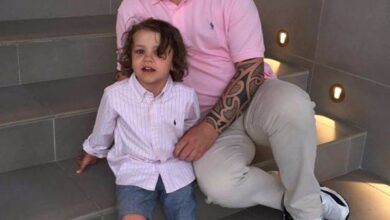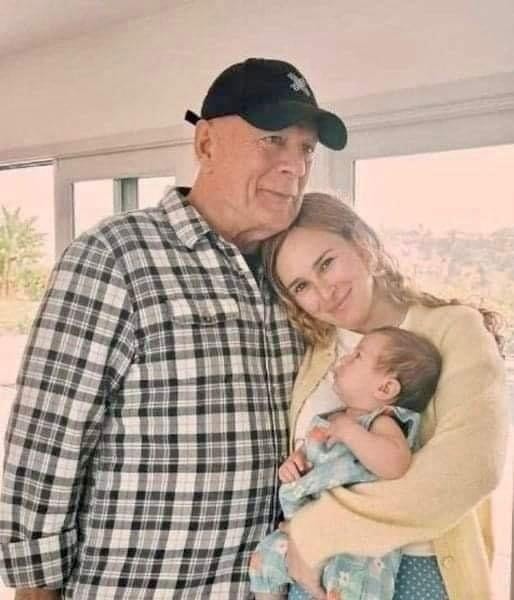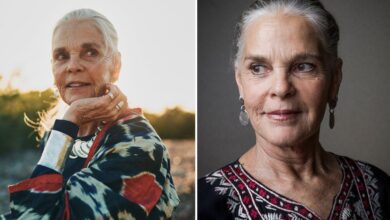A RICH MAN TURNS AWAY A 10-YEAR-OLD BOY BEGGING FOR HELP—13 YEARS LATER, THE TABLES TURN DURING AN UNEXPECTED ENCOUNTER.

Thirteen years ago, 10-year-old Jake stood outside a fancy restaurant, soaked from head to toe in the pouring rain. He hadn’t eaten in almost two days and was quietly begging from people walking by.
Then a sleek black car pulled up. Out stepped Mr. Langford – a wealthy man everyone in town knew. Jake walked up to him and politely asked if he could buy him some food or maybe just bring out his leftovers after dinner.
But Mr. Langford looked him up and down and said, “Don’t beg. Go find your parents. Get lost.”
What Mr. Langford didn’t know was that 13 years later they would meet again under very different circumstances.
Jake’s story began long before that stormy night. He had lost both his parents to a tragic accident when he was just seven. With nowhere else to go, he ended up living in a small shelter run by a local church. The caretakers did what they could, but there were too many kids and not enough resources to feed everyone properly. From an early age, Jake learned how to fend for himself. Sometimes that meant walking the streets searching for odd jobs—cleaning windows or carrying groceries for neighbors. But when it rained, people stayed inside, and on that specific night, Jake had run out of options.
As the downpour worsened, Jake’s clothes clung to his skin, his hair plastered to his forehead. Desperation forced him to wait outside the restaurant where, rumor had it, wealthy patrons rarely finished their expensive meals. He thought maybe he could catch someone willing to share or at least leave him some scraps. But the hours dragged on, and all he received were scowls. Then Mr. Langford arrived.
Jake had recognized him from the newspaper headlines: “Local Business Tycoon Launches New Real Estate Project.” The man was known for his luxurious car, exquisite suits, and a bank account that could seemingly buy anything. In that moment, Jake hoped Mr. Langford might show compassion. Instead, the only thing Jake got was an earful of cruel words. It stung. It wasn’t just the hunger gnawing at his stomach; it was the deep sense of rejection. He remembered feeling a hot flush of humiliation, even though the cold rain dripped down his cheeks. That night, he vowed he would never forget how it felt to be turned away so callously.
Fast forward 13 years.
Jake, now 23, was no longer the small, hungry boy in the rain. Through a combination of grit, determination, and an unquenchable thirst for knowledge, he managed to get a scholarship to a community college, and from there, he worked his way into a top-tier university. Along the way, he discovered a passion for business—particularly the ways in which business could be used as a force for good. He interned wherever he could, often working unpaid positions to gain experience and make connections. Eventually, he started a small consulting firm from his dorm room, advising local mom-and-pop shops on how to streamline their operations.
One of Jake’s mentors introduced him to a few investors who believed in his vision: a consulting company that combined profit with genuine social responsibility. One investor, Ms. Paloma, even said, “What struck me about Jake is that he doesn’t just want to succeed—he wants to bring others along with him.” That sealed the deal. By the age of 22, Jake was running a modest but promising consulting agency specializing in helping struggling businesses find their footing.
One sunny afternoon, Jake was invited to speak at a small business symposium in the same town where he’d grown up. He felt a mix of nostalgia and nerves stepping onto the stage. After all, this was where he had gone hungry more times than he could count, and it was also the place where a part of him had felt so alone. His presentation was simple and heartfelt: he talked about creating business models that don’t just seek profit but also serve the community. He shared personal anecdotes—though he never named names—about the time he was a kid left out in the rain.
In the crowd, a figure sat off to the side, arms folded across an immaculate suit jacket, eyes narrowing as the young entrepreneur spoke. It was Mr. Langford, now 56 years old and facing his own set of troubles. Though not public knowledge, his once-flourishing empire was on shaky ground. A series of poor real estate investments had left him short on capital, and rumors of bankruptcy swirled among the local business community.
Jake, unaware of Mr. Langford’s presence, concluded his speech to a standing ovation. Afterward, the symposium organizers set up small breakout sessions where attendees could speak one-on-one with the presenters. Jake stood by a display table, sipping water and greeting a steady stream of curious entrepreneurs. Then, in the midst of the crowd, he spotted an all-too-familiar face.
Mr. Langford approached slowly, trying to keep a calm façade. He extended his hand, though it trembled a little. Jake recalled, in a single flash, the memory of that night: the rain, the hunger, and the stinging words telling him to “get lost.” The roar of applause still hung in the air, but Jake felt time slow down. He took a breath and reached out politely.
“Hello, Mr.…Langford, right?” He kept his voice even, masking the swirl of emotions inside.
“Yes,” Mr. Langford said, swallowing hard. “I—I’ve heard a lot about your company. Very impressive.” He hesitated, choosing his words carefully. “I’ve actually come to see if we might discuss a potential partnership…or even some strategic advice. My real estate group could use fresh insights.”
Jake nodded, maintaining his composure. “Let’s talk,” he said, guiding Mr. Langford to a quiet corner. People milling around gave them curious looks—after all, it was a bit unusual to see the once-mighty businessman deferring to a young consultant.
They sat down, and Mr. Langford opened up about his problems. Declining property values, unsold units, and a loss of investor confidence. Jake listened patiently, jotting down notes. As Mr. Langford spoke, beads of sweat appeared on his forehead. It was clear he was not used to asking for help, let alone from someone half his age.
When Mr. Langford finished, Jake closed his notebook and asked, “Can you give me a moment? I need to think this through.” He stepped away to gather his thoughts. It would be so easy, he considered, to dismiss Mr. Langford the same way he had been dismissed 13 years ago. Some might even say it would be justified. But Jake reminded himself of the very mission he had set out to accomplish: to help people grow and thrive, even if they’d once hurt him.
Walking back, Jake offered Mr. Langford a blueprint. It was a preliminary plan outlining ways to restructure the real estate group’s debts, pivot some properties to more community-driven purposes, and invite local stakeholders to reinvest. It would not be easy, and it would require humility on Mr. Langford’s part, as well as a willingness to accept oversight from Jake’s consulting firm. But it was a lifeline.
Mr. Langford’s eyes widened. He looked up from the notes and said, in a soft, almost trembling voice, “Thank you. I appreciate your guidance more than you know.” Then, his gaze dropped. “You…you probably don’t remember, but once—”
Jake stopped him gently. “I remember. But it’s in the past. What matters now is what we do going forward.”
Over the next few months, Jake’s firm worked closely with Mr. Langford’s group. There were tense moments when the older man’s pride threatened to derail negotiations, but Jake remained firm yet compassionate. Slowly, properties were repurposed into affordable housing complexes or co-working spaces for local startups. As the projects found new life, the community began to take notice—and, more importantly, they began to trust Mr. Langford’s company again. Investors who had been on the fence returned cautiously, lured by the promise of a more socially responsible business model.
A year later, Mr. Langford invited Jake to a ribbon-cutting ceremony for a new development that combined retail with a community center, complete with a free tutoring space for children. As Jake arrived, he noticed a sign above the entrance: “Opportunities Start Here.” That simple phrase reminded him of how desperately he’d once waited for an opportunity to change his own life.
Mr. Langford, looking tired yet relieved, walked over and shook Jake’s hand. This time, there was genuine warmth in his grip. He cleared his throat and spoke quietly so the crowd wouldn’t hear. “You saved my business—and me—from going under. I was foolish and cruel that day so many years ago. I’ll never forget what it felt like to face your kindness after I showed you none.”
Jake squeezed his hand in return, a smile forming. “We all have moments we’re not proud of. The important thing is that we learn from them and make changes.”
And that was exactly what Mr. Langford had done. His new development was a success, breathing new life into a struggling part of town while offering real value to the community. Jake’s reputation grew as a compassionate entrepreneur who cared not only about profits but about people’s well-being.
As for Mr. Langford, though he still had his refined suits and nice car, he carried himself with more humility. He invested time and money in programs that supported disadvantaged kids—kids who, like Jake, just needed a helping hand. And every time he saw a child in need, he thought back to that night in the rain, remembering how easily he had dismissed Jake, and resolved never to do so again.
The lesson here is simple: Never underestimate the impact of kindness—or the damage that can be done by its absence. We never truly know what path someone else is walking, and a little compassion can spark a change that goes far beyond a single moment. Jake chose forgiveness and used his experiences to build something meaningful. In doing so, he turned an old hurt into a new beginning, not just for himself but also for the man who had once turned him away.
If this story resonated with you, please share it with your friends and family. And don’t forget to hit the “like” button—together, we can spread more compassion in the world, one story at a time.





